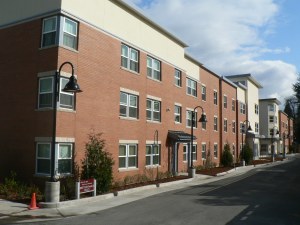Landlord/tenant laws related to foreclosures in Washington state changed as of January 1st of this year because the Protecting Tenants at Foreclosure Act of 2009 (PTFA) officially expired at the end of 2014. State law continues to provide protections to tenants in residences facing foreclosure. Some of these protections differ significantly from the Federal protections that expired. We’ve outlined some of the basics of the law below. (Note: If you rent a property that is facing foreclosure, Solid Ground’s Tenant Services recommends that you speak with an attorney to understand the full breadth of protections available to you. See our online Legal Assistance Guide for some free legal resources.)
Tenants residing in properties of four units or less at the time of sale in foreclosure must be given written notice to vacate within 60 days, regardless of whether the rental agreement is a fixed-term or month-to-month lease. If the new owner of the property wishes to rent with the existing tenants, they can ask the tenants to sign a new rental agreement. The law does not specifically state whether rent must be paid during the 60-day period, so it is advisable to set the funds aside in case they are demanded later. It is the former owner’s responsibility to return any remaining deposit as well.
If tenants choose to overstay the allotted 60-day period, they could risk an eviction being filed. The only other reasons tenants can face eviction are for waste or nuisance, especially involving illegal activities or paraphernalia.
If landlords neglect to pay for the utilities, tenants have the option to request that the utility company put the utilities in their name. Tenants should be very cautious if taking this step, and ensure that their new account will not be associated with any prior unpaid fees. This Sample Letter to Public Utility can help tenants contact their provider company and legally restore their electric and/or water services. When exiting the property, the tenant should arrange with the utility company to shut off services and close the account.
Foreclosure is a challenging and confusing process, but it is important for tenants to know what their rights are and how to assert them. Visit our Tenant Services Foreclosure webpage for more information about tenants’ rights related to foreclosures, as well as access to other helpful resources.
The tenant information contained in this article or linked to the Solid Ground Tenant Services website is for informational purposes only. Solid Ground makes no claims, promises or guarantees about the accuracy, completeness or adequacy of the information contained in or linked to its website. Solid Ground cannot act as your attorney. Solid Ground makes no representations, expressed or implied, that the information contained in or linked to its website can or will be used or interpreted in any particular way by any governmental agency or court. As legal advice must be tailored to the specific circumstances of each case, and laws are constantly changing, nothing provided here should be used as a substitute for the advice of competent counsel. Solid Ground Tenant Counselors offer these tenant tips as generalized information for renters. People with specific questions should call our Tenant Services hotline at 206.694.6767, Mondays and Wednesdays between 10:30am and 2:30pm.
Filed under: Tenant Tip | Tagged: evictions, foreclosure, landlord/tenant disputes, landlord/tenant law, Protecting Tenants at Foreclosure Act, PTFA, renters' rights, tenant rights, tenant services, utilities, Washington state law | Leave a comment »















